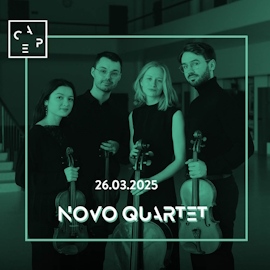Johann Christian Bachs Dixit Dominus D-Dur leitet dieses Programm ‘Mozart in Milan’ ein, in dessen Mittelpunkt die Motette Exsultate, Jubilate steht, die 1773 während eines Aufenthalts des damals 17-jährigen Mozart in Mailand komponiert wurde. Um dieses Werk herum hat Giulio Prandi ein Programm mit anderen Kompositionen für Solisten und Chor gestellt, die für adlige Mäzene in der Hauptstadt der damals österreichischen Lombardei geschrieben wurden.
Nach einem flüssig und lebendig musizierten Dixit Dominus von Johann Christian Bach stellt Prandi dem Exsultate Jubilate das 1775 in München komponierte Misericordias Domini KV 122 voran. Im Exsultate kann Robin Johannsen zwar Barbara Bonneys innig-warme Interpretation nicht erreichen, aber ihre leichte Stimme und die Begeisterung, mit der sie singt, garantieren dennoch eine gute Interpretation.
Die weiteren Werke von Johann Christian Bach, Giovanni Andrea Fioroni, einem Kapellmeister des Mailänder Doms, und dem kaum bekannten Melchiorre Chiesa sind von guter Qualität. Giulio Prandi achtet auf einen möglichst natürlichen Fluss der Musik, auf ausgewogene Tempi, einen homogenen Klang und eine insgesamt hohe Spielkultur, er produziert nicht eine Ansicht, eifert nicht einer Idee nach, sondern realisiert die Musik einfach, aber mit viel Engagement. Dem Dirigenten helfen ein inspirierter Chor und ein sensibel agierendes Orchester.
Johann Christian Bach’s Dixit Dominus in D major introduces this ‘Mozart in Milan’ program, which centers on the motet Exsultate, Jubilate, composed in 1773 during a stay in Milan by the then 17-year-old Mozart. Around this work Giulio Prandi has compiled a program of other compositions for soloists and choir written for noble patrons in the capital of what was then Austrian Lombardy.
After a fluid and lively Dixit Dominus by Johann Christian Bach, Prandi precedes the Exsultate Jubilate with Misericordias Domini K. 122, composed in Munich in 1775. In the Exsultate, Robin Johannsen can’t match Barbara Bonney’s heartfelt, warm interpretation, but her light voice and the enthusiasm with which she sings still guarantee a good interpretation.
The other works by Johann Christian Bach, Giovanni Andrea Fioroni, a chapel master of Milan Cathedral, and the little-known Melchiorre Chiesa are of good quality. Giulio Prandi pays attention to the most natural flow of the music, balanced tempi, homogeneous sound and overall high playing culture, he does not produce a view, does not emulate an idea, but realizes the music simply, but with great commitment. The conductor is helped by an inspired choir and a sensitively playing orchestra.





















